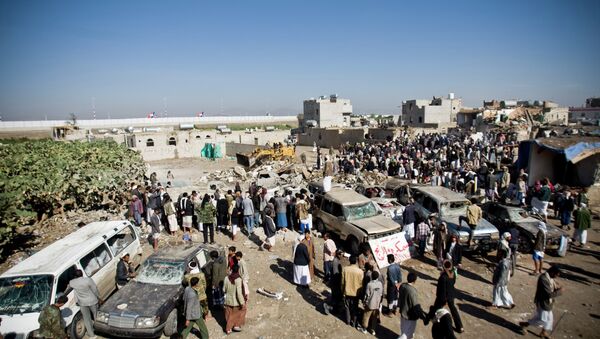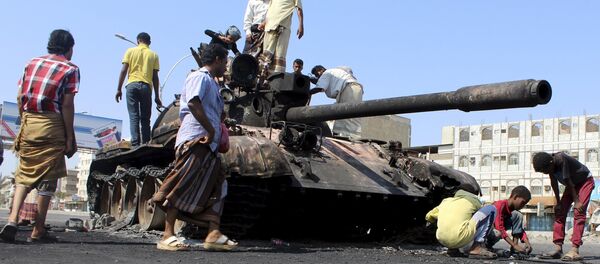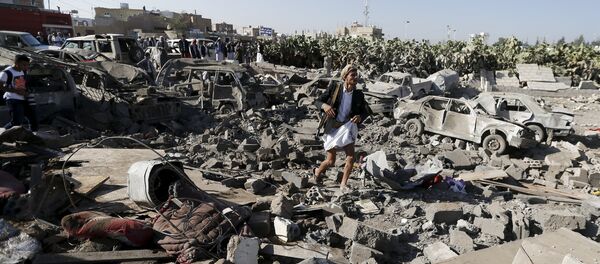“The thing is that we have to restock our supplies in Yemen with more supplies. If we do not manage to bring these supplies, we would not be able to cope with the situation and the people would be without treatment, and mostly [the] wounded,” Sitara Jabeen said.
“We have been negotiating but we still haven’t got permission [from the coalition to deliver medical aid],” she said.
She said one plane was to arrive earlier in the day and another plan included loading the plane in the Jordanian capital of Amman where the Red Cross has a warehouse.
On March 25, a Saudi-led coalition began airstrikes against Houthi militants currently in control of large parts of Yemen, including the capital Sanaa. Apart from Saudi Arabia, United Arab Emirates, Kuwait, Bahrain, Qatar, Jordan, Morocco, Sudan, Pakistan and Egypt participate in the coalition with intelligence, targeting and logistical support provided by the United States.
The international coalition airstrikes target Houthi positions located in or near residential areas and as a result numerous people, including civilians, are being killed and wounded by the coalition attacks.




